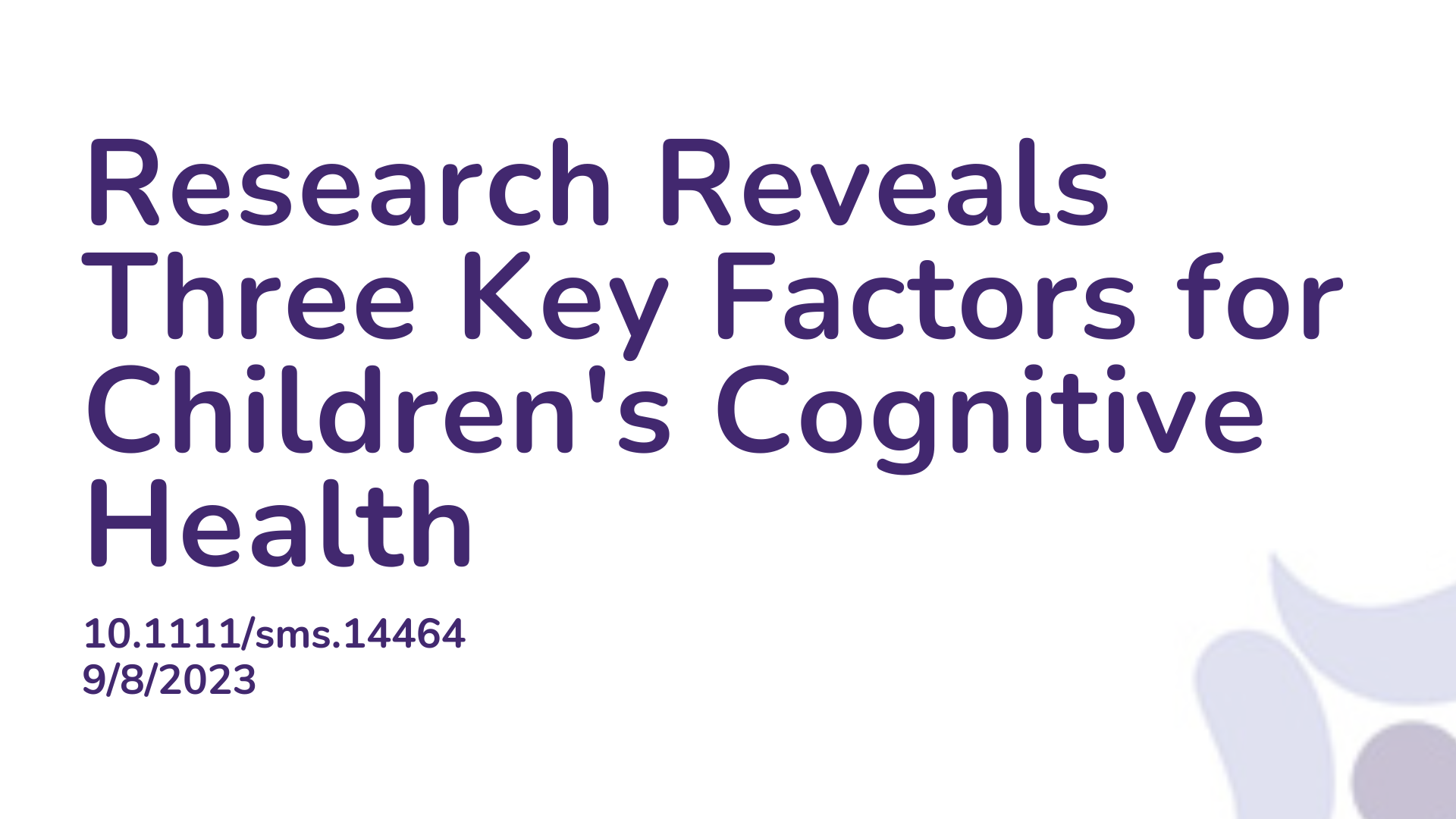Summary:
According to a recent study from the University of Eastern Finland, children of school age years showed greater cognitive improvement when eating a good quality diet, spending sufficient time reading and engaging in group sports. On the contrary, sedentary behaviour, excessive computer time and unsupervised physical activity were associated with poor reasoning skills, which can be defined as the skills required to think critically, make decisions and gather thoughts. The dietary patterns that were most associated with better cognitive outcomes were consuming low-fat dairy and a reduced red meat and sausage consumption.
Abstract:
Background and Objective: We investigated the effects of a combined dietary and PA intervention on cognition in children and whether changes in diet quality, PA, sedentary behavior (SB), and sedentary time (ST) are associated with changes in cognition. Methods: We conducted a 2-year nonrandomized controlled trial in 504 children aged 6–9 years at baseline. The children were allocated to a combined dietary and PA intervention group (n = 237) or a control group (n = 160) without blinding. Interventions: The children and their parents allocated to the intervention group had six dietary counseling sessions of 30–45 min and six PA counseling sessions of 30–45 min during the 2-year intervention period. The children were also encouraged to participate in after-school exercise clubs. Cognition was assessed by the Raven’s Colored Progressive Matrices. We assessed dietary factors by 4 days food records and computed the Baltic Sea Diet Score (BSDS) as a measure of diet quality. PA and ST were assessed by a combined heart rate and body movement monitor, types of PA and SB by a questionnaire. Results: The intervention had no effect on cognition. Increased BSDS and consumption of low-fat milk and decreased consumption of red meat and sausages were associated with improved cognition over 2 years. Increased organized sports, ST, and reading were positively, while unsupervised PA, computer use, and writing were negatively associated with cognition. Conclusion: Combined dietary and PA intervention had no effect on cognition. Improved diet quality and increased organized sports and reading were associated with improved cognition.
Article Publication Date: 9/8/2023
DOI: 10.1111/sms.14464



